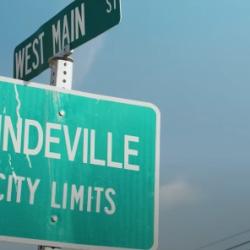The King County (Washington) Coalition Against Domestic Violence offers this advice about warning signs:
Is someone you know being controlled in their relationship?
• Does their partner put them down, tell them what to do or embarrass them in front of others?
• Does their partner keep tabs on them by calling, texting or showing up where they are?
• Are you seeing less and less of them? Does their partner make it hard for them to see you or other friends or family?
• Does your friend make excuses or take the blame for their partner’s behavior?
• Are they being physically hurt?
The group also offers these tips on how to help:
If any of these are happening, here are some things to keep in mind…
• Believe your friend.
• Let them know that it’s not their fault.
• Listen and be supportive. Be there when you are needed.
• Offer suggestions and ideas, not opinions. Don’t try to make decisions for them.
• Let them know that their feelings are OK.
• Remember that change takes time and your friend is facing hard choices. If they decide to leave, it may be a long process.
• Trust that their choices are the right ones for them. You haven’t been in the relationship so it’s not your place to judge.
What can you do or say to help?
Here are some things you can do …
• If someone is in immediate danger, call 911. Be a witness if your friend wants you to be.
• Help them to make a plan for themselves and/or their kids to stay safe.
• Give them a hotline number. Encourage them to call to get more information and support.
• Make sure that you don’t talk to them about the abuse in front of their partner.
• Offer to help with things like transportation, groceries or childcare.
• If your friend is the abusive one, there is help for them too.Here are some things you can say…
• “I care about you/your family. I’m concerned that you might be hurt emotionally or physically. I’m worried about your safety.”
• “In a relationship where there is abuse or violence, it often gets worse over time.”
• “You are not alone, this happens to a lot of people. It’s not your fault.”
The Eastside Domestic Violence Program in Bellevue, Washington, has a thorough, detailed Personal Safety Plan available for free online. It can be adapted and personalized as needed. The plan begins with this statement:
The following steps represent my plan for increasing my safety and preparing in advance for the possibility of further domestic violence. Although I do not have control over my partner’s violence, I do have a choice about how to respond to them and how to best get myself and my children to safety.
Eastside also operates a 24-hour crisis hotline: 1-425-726-1940 or 1-800-827-8840.
DAWN, the Domestic Abuse Women’s Network in King County, also has a 24-hour hotline: 425-656-7867.
The Salvation Army in Seattle has a 24-hour hotline: 206-324-4943.
The Washington State Domestic Violence Hotline number is 1-800-562-6025.
If you live in the Seattle area, there is help available. If you worship at a church in Seattle, there is help available. If you’re married to someone who works at a church in Seattle, there is help available.
You are not alone, this happens to a lot of people. It’s not your fault.
I care about you and your family. I’m concerned that you might be hurt emotionally or physically. I’m worried about your safety.
There is help available.
















